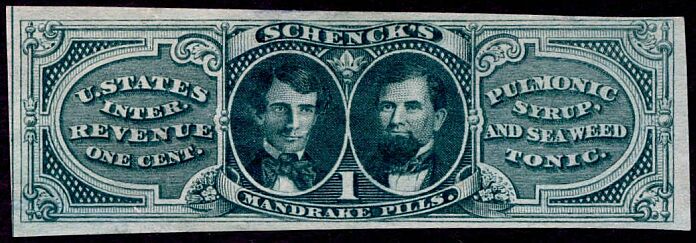
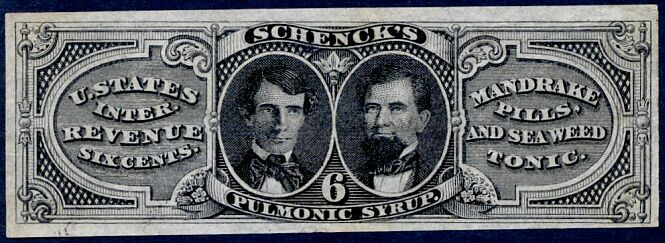
Schenck's Mandrake Pills
Schenck's Pulmonic Syrup
J.H. Schenck & Son


Joseph H. Schenck introduced his Mandrake Pills in 1836, stating "that persons who keep their insides clean, as nature intended, are less susceptible to these ailments than those who allow their system to become clogged with toxic poison, which is preventable." The pills were reportedly rather bitter, but by the 1860's had been sugar coated to make them more palatable. Pulmonic Syrup (a treatment for consumption) and Sea-Weed Tonic (for dyspepsia) first appeared in the same year.
Schenck used general issue stamps for several years, but in September of 1865 his one-cent green and four-cent black private die stamps were issued. Both were last delivered in April of 1880.
2,479,000 of the one-cent Mandrake Pills stamps were issued on old paper, 27,000 of which were perforated, plus 3,439,827 on silk paper and 1,266,827 on pink and watermarked papers, which were all imperforate. The copy above is on watermarked paper.
1,004,800 of the six-cent Pulmonic Syrup stamp were printed on old paper, 18,500 of which were perforated. 475,415 were printed on silk and 53,392 on pink and watermarked papers, all imperforate. The copy illustrated is on old paper.
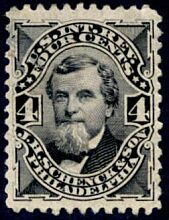
J.H. Schenck and J.H. Schenck, Jr. were partners until 1875, when it is possible that the elder Schenck died or retired. In the late 1870's the prices for Pulmonic Syrup and Sea-Weed Tonic were reduced, so a four-cent stamp was needed. One of a totally different design was prepared and issued from sometime in 1878 until April 12, 1883. 468,375 were printed, all on watermarked paper.
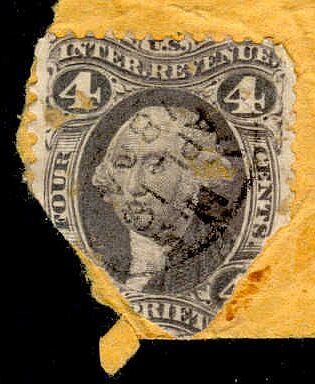
In Patent Medicine Tax Stamps Henry Holcombe writes that, "...there appears to be no trace of any of the regular government issue of revenues being canceled for his (Schenck's) use." This piece of a general issue proprietary stamp is on a Sea-Weed Tonic wrapper and is canceled "J.H.S. - Apl 1? - 1864."
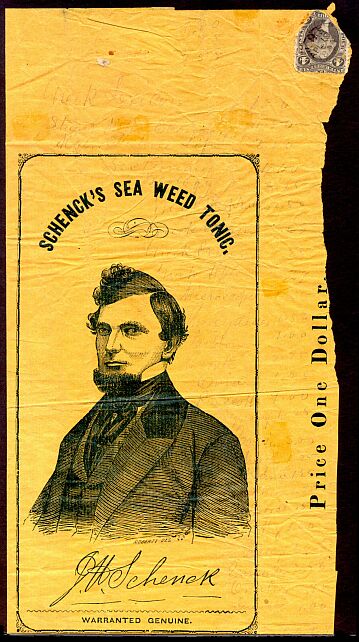
The wrapper, with the remainder of the general issue stamp attached.
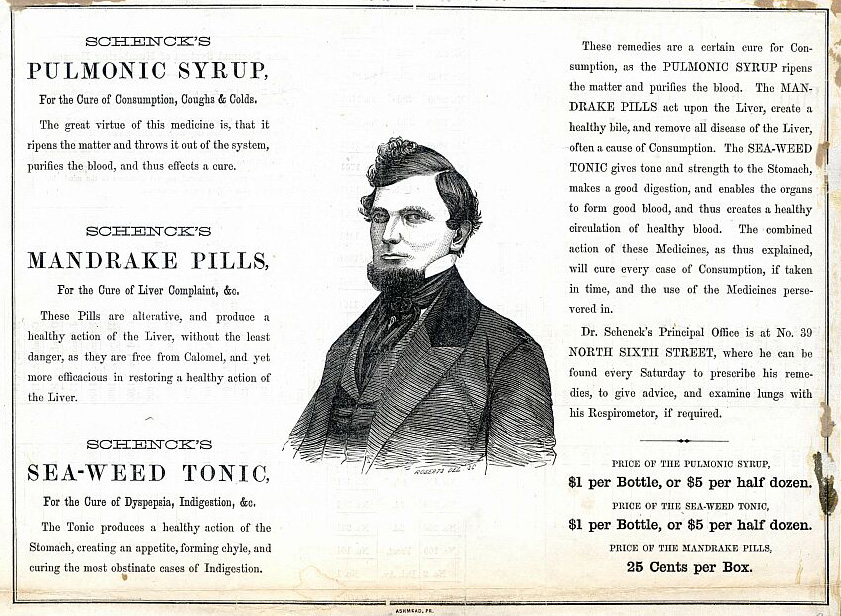
An advertisement for the Schenck products. Note that "Dr. Schenck's Principal Office is at No. 39 NORTH SIXTH STREET, where he can be found every Saturday to prescribe his remedies, to give advice, and examine lungs with his Respirometor, if required."
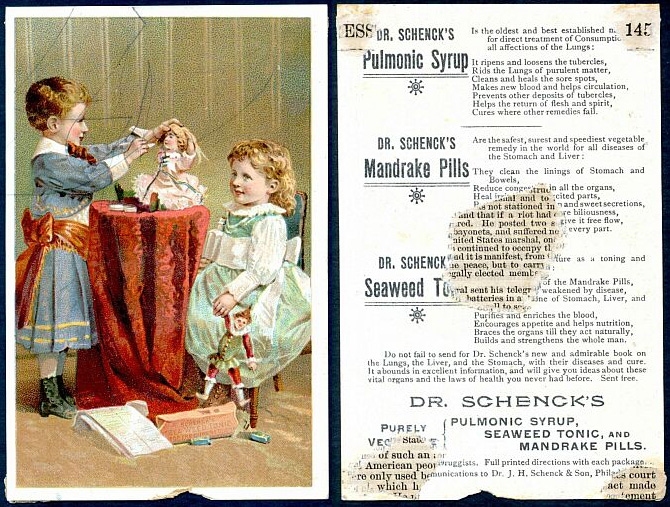
A Schenck trade card.
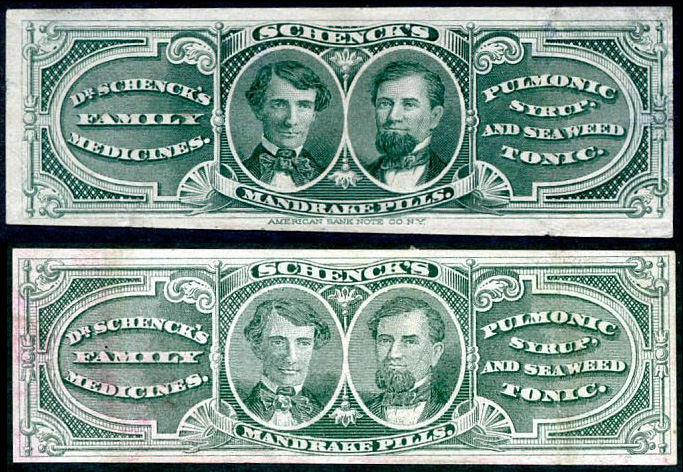
After June 30, 1883, the Schenck products bore facsimile stamps. The first were prepared by the American Bank Note Company, and reportedly still contained the wording "U. STATES - INTER. - REVENUE" at the left. The Bureau of Internal Revenue put a stop to that rather quickly. The top example bears the American Bank Note Company name at bottom, and the lower example, which appears to be printed from a new die, does not. The E.A. Wright Company of Philadelphia also printed a version.
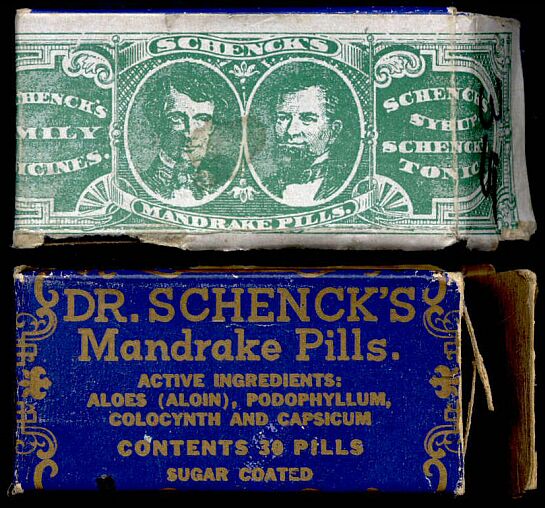
A package of Dr. Schenck's Mandrake Pills with a facsimile label still attached. A metal box full of pills is still inside.
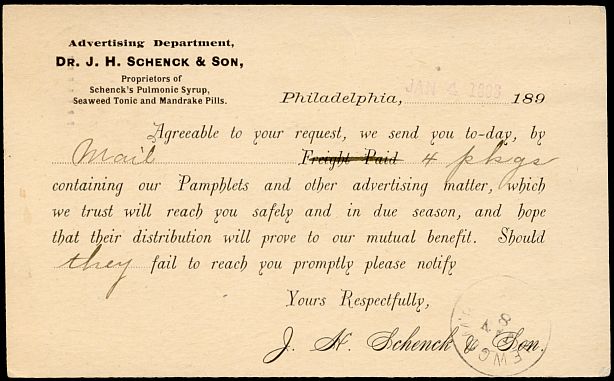
An 1883 postcard mailed from the Advertising Department of Dr. J.H. Schenck & Son to notify a distributor that pamphlets had been sent as requested.

A Schenck label. No idea what vintage.
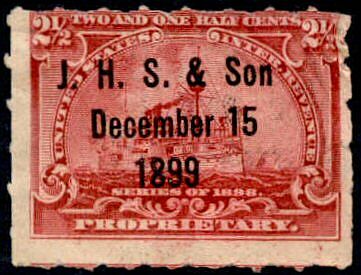
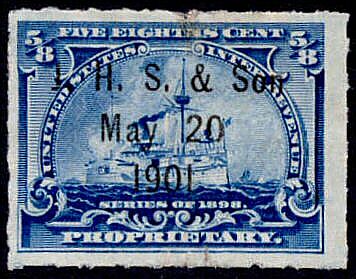
Schenck cancels on general issue Spanish American War proprietary stamps. There are several versions listed. The lower two lines of type on the left stamp have serifs on the numbers, while those on the right stamp do not.